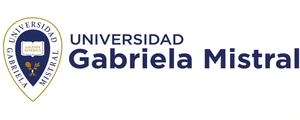Gabriela Mistral University Repository
The Gabriela Mistral University Library has developed the following Academic Repository in order to preserve, disseminate and make available the full-text contents of the academic production developed by the different actors in the academic and research field of the University.
The UGM University at the beginning of the year 2017 incorporated the UCINF University, also adding that collection where we find memories, theses, degree works, academic magazines, speeches, books, digital and sound files. Contact: [email protected]
The UGM University at the beginning of the year 2017 incorporated the UCINF University, also adding that collection where we find memories, theses, degree works, academic magazines, speeches, books, digital and sound files. Contact: [email protected]
Reflexiones metafísicas sobre la ley moral en Santo Tomás de Aquino
| dc.contributor.author | Ocampo Ponce, Manuel | |
| dc.date.accessioned | 2019-09-25T18:24:04Z | |
| dc.date.available | 2019-09-25T18:24:04Z | |
| dc.date.issued | 2019 | |
| dc.identifier.citation | Revista Chilena de Estudios Medievales Número 15, 2019 pp. 29-41 | es_ES |
| dc.identifier.issn | 0719-689X | |
| dc.identifier.uri | https://hdl.handle.net/20.500.12743/1703 | |
| dc.description.abstract | La persona humana, en el ejercicio de su libertad, ha de ordenar todos y cada uno de sus actos al fin que constituye su perfección y que está establecido en su naturaleza. En el ámbito de los entes corpóreos, esa posibilidad de elegir los medios, es exclusiva de los seres humanos, debido a que los seres irracionales tienden necesariamente a sus fines sin que exista un orden moral en ellos. Para ordenar sus actos humanos y alcanzar su fin, Dios ha establecido la ley o el orden que es necesario seguir. Sin embargo, el relativismo que impera en la actualidad, nos anima a destacar la base metafísica que sustenta ese orden o ley, y que se encuentra magistralmente elaborada por Santo Tomás de Aquino. El presente trabajo es una indagación metafísica sobre la ley y algunas de sus implicaciones, en el pensamiento de Santo Tomás de Aquino, que nos ofrece una fundamentación muy sólida al presentarla como criterio objetivo que nos indica cómo debe actuar el hombre para alcanzar su fin, mediante el uso adecuado de la libertad. // Abstract The human person, in the exercise of his freedom, must order each of his acts to the end that constitutes his perfection and that is established in his nature. In the corporeal sphere, the possibility of choosing the means to do something is only possible in human beings. Irrational beings necessarily tend to their ends without there being a moral order in them. To order their human actions and reach their end, God has established the law or order that needs to be followed. However, the relativistic context in which we find ourselves encourages us to recover the metaphysical base that sustains that order or law, and which is masterfully prepared by Saint Thomas Aquinas. The present paper is a metaphysical inquiry into the law and some of its implications, in the thought of Saint Thomas Aquinas. He offers us a very solid foundation by presenting the law as an objective criterion that tells us how man must act to achieve his end, through the proper use of freedom | es_ES |
| dc.language.iso | es | es_ES |
| dc.publisher | Universidad Gabriela Mistral - Centro de Estudios Medievales | es_ES |
| dc.relation.ispartofseries | Revista Chilena de Estudios Medievales; | |
| dc.rights | Attribution-NoDerivs 3.0 United States | |
| dc.rights.uri | http://creativecommons.org/licenses/by-nd/3.0/us/ | |
| dc.subject | Ley | es_ES |
| dc.subject | Bien | es_ES |
| dc.subject | Naturaleza | es_ES |
| dc.subject | Libertad | es_ES |
| dc.title | Reflexiones metafísicas sobre la ley moral en Santo Tomás de Aquino | es_ES |
| dc.title.alternative | Metaphysical reflections on the moral law in Saint Thomas Aquinas | es_ES |
| dc.type | Article | es_ES |



